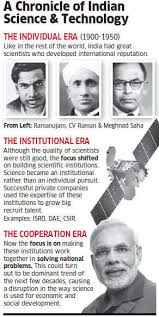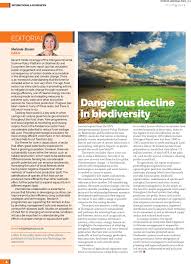Latest Developments in Science and Technology
The world of science and technology is constantly evolving, with new breakthroughs and innovations emerging on a regular basis. From advancements in artificial intelligence to groundbreaking research in renewable energy, the pace of change is both exciting and transformative. In this article, we explore some of the most significant recent developments in science and technology.
Artificial Intelligence: Revolutionising Industries
Artificial intelligence (AI) continues to be at the forefront of technological innovation. Recent advancements have seen AI being integrated into various industries, enhancing efficiency and productivity. In healthcare, AI algorithms are being used to analyse medical images with remarkable accuracy, aiding doctors in diagnosing diseases more effectively. Similarly, AI-driven automation is transforming manufacturing processes, reducing costs and improving quality control.
Renewable Energy: A Sustainable Future
The push towards renewable energy sources has gained momentum as countries aim to reduce their carbon footprints. Solar and wind power technologies have seen significant improvements in efficiency and cost-effectiveness. Recent developments include the creation of more efficient solar panels that can generate electricity even on cloudy days. Additionally, offshore wind farms are becoming increasingly viable as turbine technology advances.
Quantum Computing: Unlocking New Possibilities
Quantum computing is another area that has seen remarkable progress. Researchers are making strides towards developing quantum computers that can solve complex problems far beyond the capabilities of classical computers. This technology has the potential to revolutionise fields such as cryptography, material science, and drug discovery by enabling calculations that were previously thought impossible.
Space Exploration: Reaching New Frontiers
The field of space exploration is witnessing a resurgence with ambitious missions planned by both government agencies and private companies. Recent successes include the landing of rovers on Mars to search for signs of past life and the deployment of advanced telescopes that provide unprecedented views of distant galaxies. These missions not only expand our understanding of the universe but also inspire future generations to pursue careers in science and engineering.
The Role of Collaboration
One common theme across these developments is the importance of collaboration between scientists, engineers, policymakers, and industry leaders. By working together across disciplines and borders, we can accelerate progress and tackle global challenges more effectively.
The future holds immense possibilities as science and technology continue to advance at an unprecedented pace. Staying informed about these developments is crucial for understanding their impact on society and exploring new opportunities for innovation.
Exploring the Frontiers: Addressing Key Questions in Science and Technology News
- What are the latest advancements in artificial intelligence?
- How is renewable energy impacting the environment?
- What is quantum computing and how does it work?
- What are the recent breakthroughs in space exploration?
- How is technology being used to combat climate change?
- What ethical considerations arise from developments in science and technology?
- How are scientists addressing cybersecurity challenges in a digital age?
- What role does data analytics play in shaping technological innovations?
- How do emerging technologies like blockchain and IoT influence various industries?
What are the latest advancements in artificial intelligence?
Recent advancements in artificial intelligence (AI) have been remarkable, with significant progress made in areas such as machine learning, natural language processing, and computer vision. AI systems are now capable of understanding and generating human-like text, thanks to sophisticated language models. In healthcare, AI is being used to predict patient outcomes and personalise treatment plans, enhancing the precision of medical care. Autonomous vehicles are becoming more reliable due to improved AI algorithms that enable better decision-making in complex driving environments. Additionally, AI is playing a crucial role in climate modelling and environmental monitoring, helping scientists understand and address pressing global challenges. These advancements are not only transforming industries but also reshaping the way we interact with technology on a daily basis.
How is renewable energy impacting the environment?
Renewable energy is significantly impacting the environment in a positive way. Unlike traditional fossil fuel sources, renewable energy sources such as solar, wind, and hydroelectric power generate electricity without emitting harmful greenhouse gases that contribute to climate change. By harnessing these clean and sustainable energy sources, we can reduce air pollution, mitigate the effects of global warming, and preserve natural resources. Additionally, the adoption of renewable energy technologies promotes biodiversity conservation and helps create a more sustainable future for generations to come.
What is quantum computing and how does it work?
Quantum computing is a cutting-edge technology that harnesses the principles of quantum mechanics to perform computations at speeds far beyond those of traditional computers. Unlike classical computers, which use bits to represent information as either 0s or 1s, quantum computers use quantum bits, or qubits, which can exist in multiple states simultaneously thanks to a phenomenon known as superposition. This allows quantum computers to process vast amounts of data in parallel and solve complex problems that are practically impossible for classical computers to handle efficiently. Furthermore, qubits can also exhibit entanglement, where the state of one qubit is linked to the state of another, enabling quantum computers to perform calculations with unprecedented speed and efficiency.
What are the recent breakthroughs in space exploration?
Recent breakthroughs in space exploration have captivated the world with their awe-inspiring advancements. From the successful landing of rovers on Mars to the discovery of potentially habitable exoplanets, the field of space exploration has seen remarkable progress in recent years. Notable achievements include the deployment of advanced telescopes that provide unprecedented views of distant galaxies and the development of innovative propulsion systems for faster and more efficient interplanetary travel. These breakthroughs not only expand our understanding of the universe but also pave the way for future missions that push the boundaries of human exploration beyond our own solar system.
How is technology being used to combat climate change?
Technology is playing a pivotal role in combating climate change by offering innovative solutions to reduce greenhouse gas emissions and promote sustainability. From renewable energy sources like solar and wind power to advancements in energy efficiency and smart grid technologies, the tech industry is driving significant progress in the fight against climate change. Additionally, emerging technologies such as carbon capture and storage, electric vehicles, and sustainable agriculture practices are further contributing to mitigating the impacts of global warming. By harnessing the power of technology and fostering collaboration between scientists, policymakers, and industry leaders, we are paving the way towards a more sustainable future for our planet.
What ethical considerations arise from developments in science and technology?
Developments in science and technology bring about numerous ethical considerations that require careful deliberation. One major concern is privacy, particularly with the rise of artificial intelligence and data analytics, which can lead to intrusive surveillance and the potential misuse of personal information. Additionally, advancements in biotechnology, such as genetic editing, raise questions about the moral implications of altering human DNA and the potential for unintended consequences. The automation of jobs through robotics and AI also poses ethical dilemmas regarding employment and economic inequality. Furthermore, there are concerns about ensuring equitable access to technological advancements so that they do not exacerbate existing social disparities. As these technologies continue to evolve, it is crucial for policymakers, technologists, and society as a whole to engage in ongoing discussions about their ethical implications to ensure they are developed and implemented responsibly.
How are scientists addressing cybersecurity challenges in a digital age?
In the rapidly evolving digital age, scientists are actively addressing cybersecurity challenges to safeguard sensitive information and critical infrastructure from cyber threats. By employing a combination of advanced encryption techniques, machine learning algorithms, and robust security protocols, researchers are developing innovative solutions to detect and prevent cyber attacks. Additionally, collaborations between academia, industry, and government agencies are enhancing cybersecurity measures through information sharing and coordinated responses to emerging threats. The ongoing efforts of scientists in this field are crucial in ensuring the resilience of our digital systems and protecting data privacy in an increasingly interconnected world.
What role does data analytics play in shaping technological innovations?
Data analytics plays a pivotal role in shaping technological innovations by providing valuable insights that drive decision-making and problem-solving processes. Through the analysis of vast amounts of data, businesses and researchers can identify patterns, trends, and correlations that inform the development of new technologies and solutions. By leveraging data analytics tools and techniques, organisations can streamline operations, improve efficiency, and enhance the user experience. Ultimately, data analytics serves as a catalyst for innovation, enabling companies to stay ahead of the curve in an increasingly data-driven world.
How do emerging technologies like blockchain and IoT influence various industries?
Emerging technologies such as blockchain and the Internet of Things (IoT) are revolutionising various industries by introducing new possibilities and efficiencies. Blockchain, with its secure and transparent nature, is transforming sectors like finance, supply chain management, and healthcare by enabling secure transactions, traceability of goods, and immutable record-keeping. On the other hand, IoT is reshaping industries like manufacturing, agriculture, and smart cities by connecting devices and systems to gather real-time data for improved decision-making and automation. The integration of these technologies is driving innovation, enhancing productivity, and creating new business models across different sectors.



